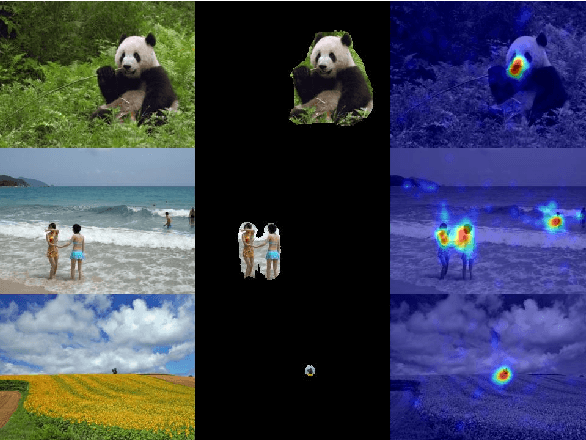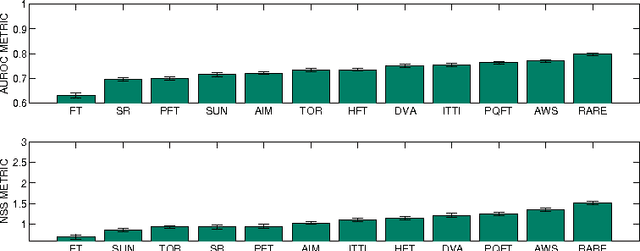A study of parameters affecting visual saliency assessment
Paper and Code
Jul 22, 2013



Since the early 2000s, computational visual saliency has been a very active research area. Each year, more and more new models are published in the main computer vision conferences. Nowadays, one of the big challenges is to find a way to fairly evaluate all of these models. In this paper, a new framework is proposed to assess models of visual saliency. This evaluation is divided into three experiments leading to the proposition of a new evaluation framework. Each experiment is based on a basic question: 1) there are two ground truths for saliency evaluation: what are the differences between eye fixations and manually segmented salient regions?, 2) the properties of the salient regions: for example, do large, medium and small salient regions present different difficulties for saliency models? and 3) the metrics used to assess saliency models: what advantages would there be to mix them with PCA? Statistical analysis is used here to answer each of these three questions.
 Add to Chrome
Add to Chrome Add to Firefox
Add to Firefox Add to Edge
Add to Edge